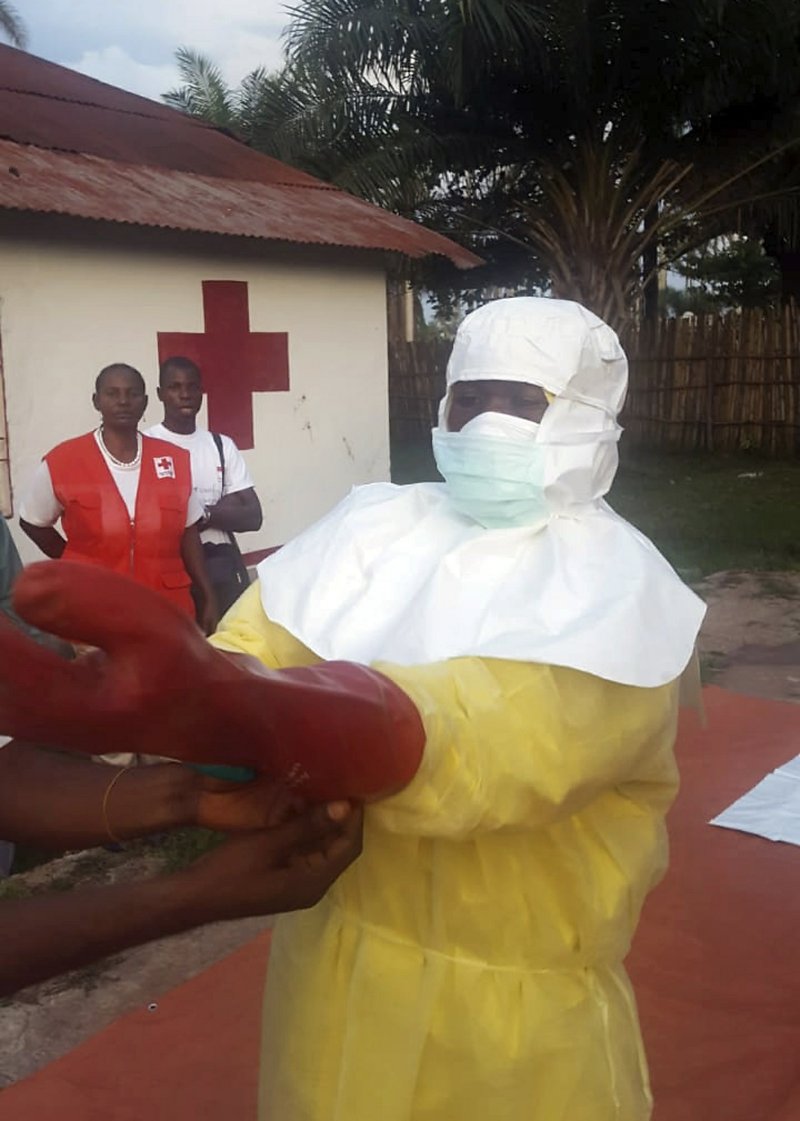Global Ebola risk low so far, WHO says
KINSHASA, Congo -- Congo's latest Ebola outbreak does not yet warrant being declared a global health emergency, the World Health Organization announced Friday, as health officials rushed to contain the often deadly virus that has spread to a city of more than 1 million.
The vast, impoverished country now has 14 confirmed Ebola cases, with dozens of others probable or suspected.
WHO officials, speaking after an experts' meeting on the outbreak, said vaccinations could begin as early as Sunday in a key test of an experimental vaccine.
The health agency called the risk to the public in Congo "very high" and the regional risk high, with the global risk low. The Republic of Congo and Central African Republic are nearby and are among nine neighboring countries alerted. The WHO said there should be no international travel or trade restrictions.
Dr. Robert Steffen, who chaired the meeting of experts, said there was "strong reason to believe this situation can be brought under control."
He noted the almost immediate response by the WHO and its partners after Ebola was announced in Congo last week. Without a vigorous response, "the situation is likely to deteriorate significantly," he added.
Ecuador pulls Assange's extra security
QUITO, Ecuador -- Ecuadorean President Lenin Moreno has ordered the immediate withdrawal of extra security assigned to the country's embassy in London where WikiLeaks founder Julian Assange has resided since 2012.
A brief statement from Ecuador's National Communications Secretariat said that from now on the diplomatic mission would have "normal security similar to the rest of Ecuador's embassies in the world."
The statement did not say why the decision was made.
In March, Ecuador's government cut off Assange's Internet because of his activity on social media decrying the arrest of a Catalan separatist politician.
Ecuador granted Assange asylum in its London embassy in 2012, and he has remained there ever since. Ecuador has tried to find a solution that would allow Assange to leave without the threat of arrest, but with no success.
Abducted aid workers freed in S. Sudan
JUBA, South Sudan -- The U.S.-based aid group World Vision announced Friday that eight staff members and a Ugandan who were abducted earlier this week in civil-war-torn South Sudan have been released.
They were seized Monday while driving in a convoy outside the Equatorian town of Yambio.
The statement released Friday says the United Nations and local authorities led negotiations for their release.
Neither South Sudan's government nor opposition has taken responsibility for the abduction. Each often blames the other in such circumstances.
This is the third abduction of humanitarian workers in two months in South Sudan. Seventeen aid workers were kidnapped by armed groups in two separate incidents last month.
The release comes as a new round of peace talks on the conflict is underway in neighboring Ethiopia.
Fighting kills 9 people at Kashmir border
SRINAGAR, India -- Eight civilians, including an Indian husband and wife and four members of a Pakistani family, were killed when Indian and Pakistani soldiers fired at border posts and villages along the highly militarized frontier in disputed Kashmir, officials said Friday.
An Indian soldier also was killed in the fighting.
The cross-border firing and shelling began overnight and spread to dozens of posts in the Jammu region of the Himalayan territory, said Indian police officer S.D. Singh.
Indian paramilitary officials said their soldiers responded to Pakistani gunfire and shelling, describing it as "unprovoked and indiscriminate." The officials said the paramilitary soldier was killed by a Pakistani sniper Thursday night, leading to cross-border firing and shelling at several forward posts.
The husband and wife were killed when a shell fired from the Pakistani side hit their home, Indian police said. Two other civilians were also killed on the Indian side. At least 12 civilians were also wounded and were being treated in hospitals.
A Pakistani woman, Kulsoom Hussain, and her three children were killed when a mortar fired by Indian troops from across the frontier struck their home, police official Mohammad Amin said.
A Section on 05/19/2018

